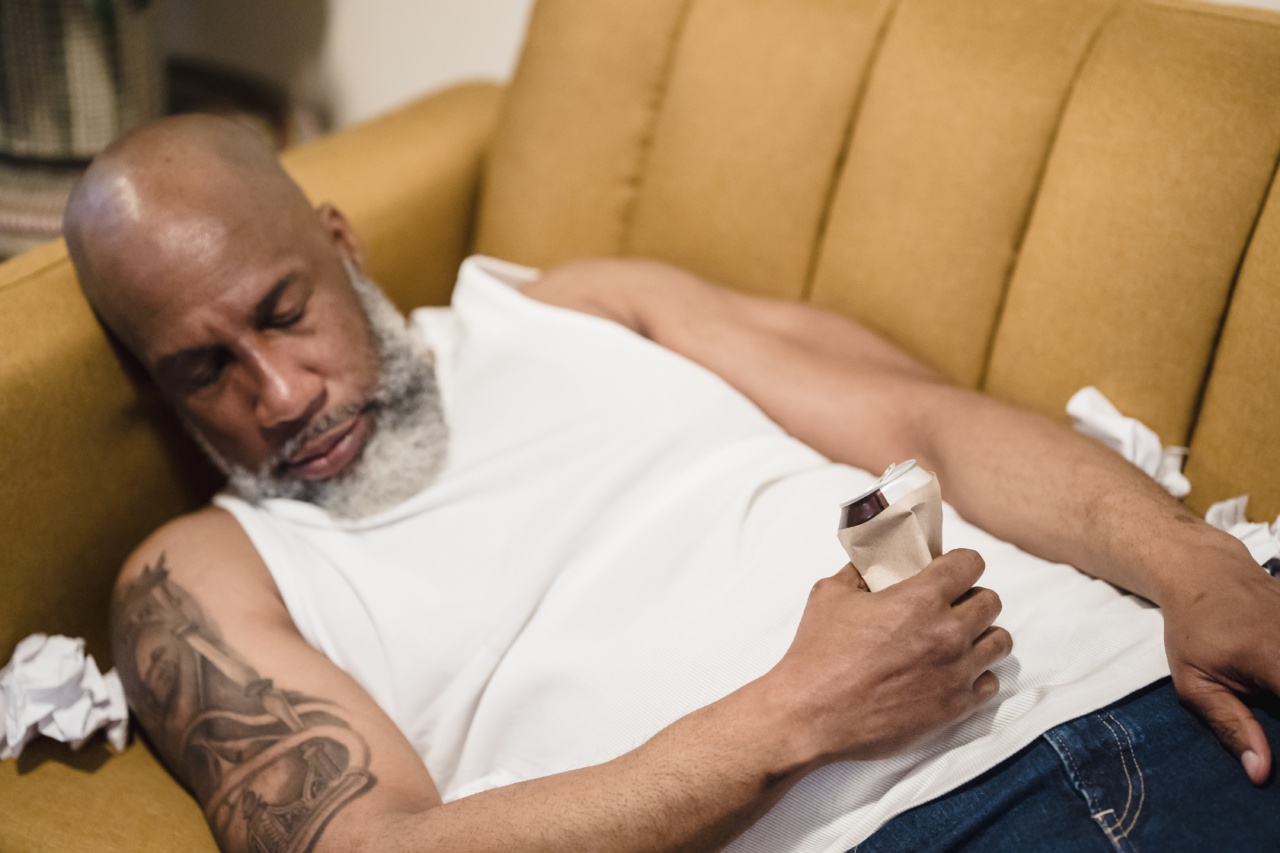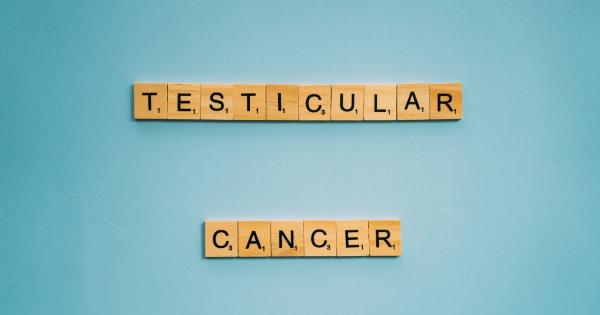Pain in the testicles can be a distressing and uncomfortable experience for men. It can interfere with daily activities and cause significant discomfort.
In this article, we will explore the various causes of testicular pain and discuss how to manage it effectively.
Anatomy of the Testicles
The testicles, also known as testes, are oval-shaped organs located within the scrotum. Their primary functions include producing testosterone and sperm.
The testicles are sensitive organs, and any pain or discomfort in this region should be taken seriously.
Causes of Testicular Pain
There are several potential causes of testicular pain, ranging from mild to severe. Here are some of the most common causes:.
1. Testicular Trauma
Testicular trauma can occur due to accidents, sports injuries, or a direct blow to the groin area. It can lead to bruising, swelling, and intense pain in the testicles. Applying an ice pack and resting can help alleviate the discomfort.
However, if the pain persists or worsens, medical attention should be sought.
2. Testicular Torsion
Testicular torsion is a medical emergency that requires immediate intervention. It happens when the testicle twists, cutting off its blood supply. Symptoms include sudden and severe pain, swelling, and nausea.
Surgery is typically necessary to untwist the testicle and prevent further damage. Without prompt treatment, testicular torsion can lead to testicular loss.
3. Epididymitis
Epididymitis is the inflammation of the epididymis, a tube-like structure located behind the testicle that stores and transports sperm. It can be caused by a bacterial infection, urinary tract infection, or sexually transmitted infection.
Symptoms include pain, swelling, and tenderness in the testicles. Antibiotics are usually prescribed to treat the underlying infection.
4. Orchitis
Orchitis is the inflammation of one or both testicles. It commonly occurs as a result of a viral infection, such as mumps. Symptoms include testicular pain, swelling, and fever.
Rest, pain relievers, and supportive measures are recommended to manage orchitis, along with treating the underlying infection.
5. Varicocele
A varicocele is an enlargement of veins within the scrotum. It can cause a dull ache or discomfort in the testicles. While varicoceles are generally harmless, they should be evaluated by a urologist if they cause persistent or worsening pain.
6. Kidney Stones
Kidney stones can cause referred pain that radiates to the testicles. The pain is typically severe and intermittent, often accompanied by blood in the urine, urinary urgency, and a frequent need to urinate.
Treatment for kidney stones may include medication, lifestyle changes, or procedures to break up or remove the stones.
7. Hernia
A hernia occurs when an organ or tissue pushes through a weakened area in the abdominal wall. Inguinal hernias, which occur in the groin area, can sometimes cause testicular discomfort or pain.
Surgery is often required to repair a hernia and relieve associated symptoms.
8. Prostatitis
Prostatitis, the inflammation of the prostate gland, can cause referred pain to the testicles. It is often associated with urinary symptoms, such as frequent urination, pain during urination, and difficulty emptying the bladder.
Treatment may include antibiotics, anti-inflammatory medication, and lifestyle modifications.
9. Testicular Cancer
While testicular cancer is relatively rare, it can sometimes present with testicular pain. Other symptoms may include a lump or swelling in the testicle, a feeling of heaviness, and a dull ache in the lower abdomen or groin.
If testicular cancer is suspected, a healthcare professional should be consulted for further evaluation and diagnosis.
10. Psychological Factors
Psychological factors, such as stress, anxiety, and depression, can manifest as physical symptoms, including testicular pain.
It is essential to address underlying psychological issues through therapy, counseling, or stress management techniques to alleviate the pain caused by these factors.
Managing Testicular Pain
The appropriate management of testicular pain depends on its underlying cause. Here are some general strategies to help manage testicular pain:.
1. Rest and Support
Supporting the testicles with tight-fitting underwear or a suspensory can help reduce discomfort and promote healing.
2. Applying Cold Compress
Applying a cold compress or ice pack to the affected area can help reduce swelling and alleviate pain.
3. Over-the-counter Pain Relievers
Nonsteroidal anti-inflammatory drugs (NSAIDs), such as ibuprofen or acetaminophen, can help relieve pain and reduce inflammation. However, these medications should be used according to the recommended dosage and guidelines.
4. Warm Bath
Soaking in a warm bath can help relax the muscles and alleviate testicular pain.
5. Avoiding Activities that Worsen the Pain
Engaging in activities that worsen testicular pain, such as heavy lifting or intense physical exertion, should be avoided until the pain subsides.
6. Seeking Medical Attention
If testicular pain persists, worsens, or is accompanied by other concerning symptoms, it is crucial to seek medical attention promptly. A healthcare professional can evaluate the underlying cause and recommend appropriate treatment.
Conclusion
Pain in the testicles can have various causes, ranging from minor injuries to more serious conditions. Understanding the underlying cause is crucial for effective management.
If you experience testicular pain, take note of any accompanying symptoms and consult a healthcare professional for a proper diagnosis and treatment plan.





























